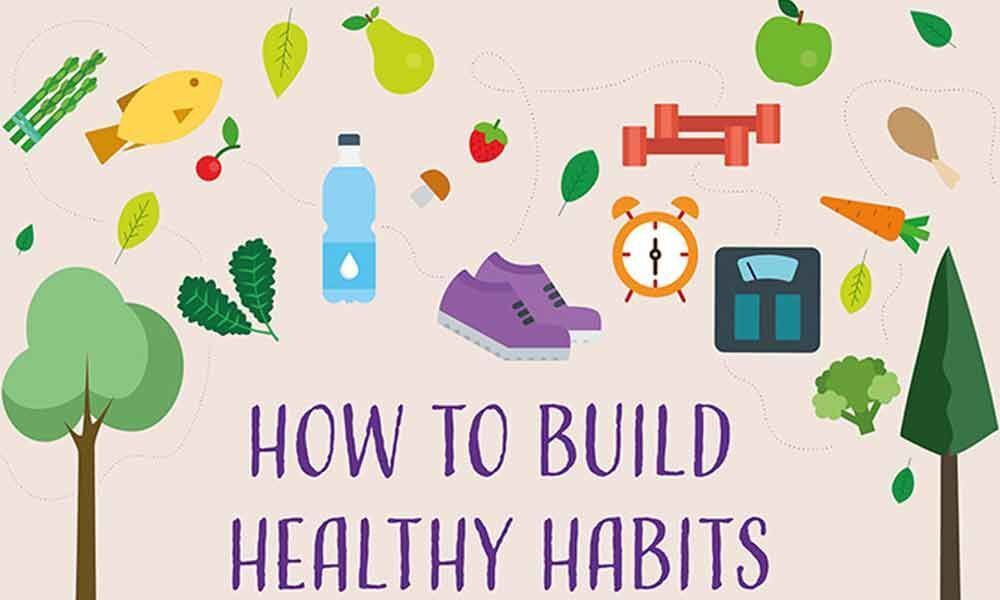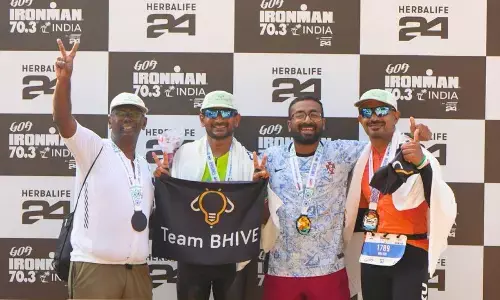Let's Make a good habit that sticks in Sixways

Psychological tips such as creating a link between the signals and the behavior and the choice of the moment make the exercise easier, for example.
Psychological tips such as creating a link between the signals and the behavior and the choice of the moment make the exercise easier, for example.
Start small
If you are used to walking regularly, you will not climb Everest this weekend. If you have an important goal, such as getting a new job, running a marathon or going to the gym five days a week, you have to divide your goal into increments. For example, if you want to run a marathon and you are not a great runner, try to run two miles a day three days a week and keep going. If you try to do too much, you will fail and you will destroy morale. Have patience, start small and build on your progress.
Identify a tail
Form a habit is to try to form a link between the behavior and the clues in your memory, which means "you embody the behavior without having to oblige," says Phillippa Lally, associate researcher at University College London, who study habits. Signals can be internal or external (for example, hungry or having a cup of tea) and are more effective when encountered every day, including weekends, to minimize daily planning and readiness. Good ones include getting up and mealtime.
To be specific
Specify what you want to do. "Do not say something big like" I want to eat more fruits and vegetables, "says Lally. "You need to have a specific plan to determine exactly when and how you will do it," for example by offering fruits and vegetables at home.
Behavior is more likely to become habitual please or is rewarding. Although it's something you do not like to do, like exercise, "when you do, you'll probably be happy with yourself"
Think about who you are
Some evidence suggests that we are more likely to create a habit when it connects to our sense of identity. "Some [habits] are representations of some important goals or values," says Bas Verplanken, a professor of social psychology at the University of Bath. "Take a person who is very concerned about the environment - habits related to environmentally friendly behaviors are linked to that identity. If you can tie certain behaviors to your sense of identity, it could help establish these habits. "
Choose your moment
"Use what we called" usual discontinuities, "says Verplanken. These are the "times when people go through changes in their lives, such as moving, creating a family or relationship, divorce, retirement, or organizational changes." These events upset old habits and allow you to create new ones. That's why New Year's resolutions tend to fail - your life and your old routines are always the same on January 2nd. However, changing jobs or schools or acquiring a pet can become a catalyst for more general change.
Do not abandon
Lally's research refuted the widespread claim that creating a habit takes 21 days - she found the average was 66 days, with some people taking up to 254 days (and others only 18). "We modelled the usual formation curve, where it climbs in the first place and reaches at a given moment a level where it's as usual as it is going to be, then plateaus - so my message from that is very variable. " And do not despair if you miss a day. "We do not know what you can miss and it's still going, but an opportunity is certainly not disastrous."
Since you're here ...
... We have a small service to ask. More and more people are reading and supporting The Guardian's independent investigative journalism. And unlike many news agencies, we have chosen an approach that allows us to keep our journalism accessible to everyone, regardless of their place of residence or their means. But we need your continued support to continue working as we do.
Here we come up to tackle the most critical issues of our time - from the growing climate disaster to widespread inequality, to the influence of advanced technologies on our lives. At a time when factual information is a necessity, we believe that all of us around the world deserve access to accurate, integrity-based information.
Our editorial independence means that we define our own agenda and express our own opinions. Guardian journalism is free from commercial and political bias and is not influenced by billionaire owners or shareholders. This means that we can give a voice to those who are less heard, explore where others are turning away, and challenge rigorously those in power.
We need your support to continue to provide quality journalism, maintain our openness and protect our precious independence. Every reader's contribution, big or small, is so precious.










